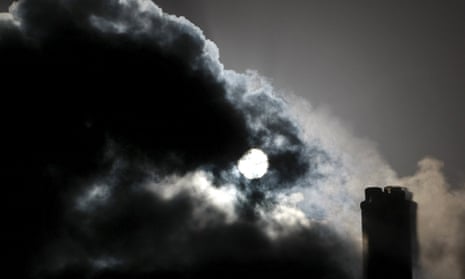For an outsider to understand another country’s climate policy is never easy. Australia is certainly no exception. As a European observer, the recent debate about climate action in Australia is particularly puzzling.
In the early 1990’s Australia was among the reasonably ambitious countries when it came to fighting climate change. Yes, Australia was slow to ratify the Kyoto Protocol – to put it diplomatically. However, in 2007, the then new Australian government announced it would ratify, much to the applause of the international community.
Up to the 2009 climate conference in Copenhagen Australia then engaged in a much stronger fashion in the international climate talks. Yet these last few years I have again witnessed strong elements of explicit climate scepticism in the fierce and polarised domestic Australian debate. Luckily, these days seem to be over. The impacts of climate change are already taking their toll, including in Australia.
The Australian government has now sent to the UN its bid as to what Australia’s contribution to the joint global effort of addressing climate change will be. The level of ambition has not gone down very well with the international community. Only if all developed countries do their fair share of the required joint effort, can we expect developing and emerging countries to also take action.
But the good news is that finally there now seems to be an unequivocal acceptance in Australian politics, from the top down, that climate change is happening and that it must be addressed urgently.
Now here is the puzzling question: why on earth wait until 2017/2018 to be more specific on how Australia should address climate change? It has been six years since the climate conference in Copenhagen. It has also been four years since the world, including Australia, agreed in Durban to set Paris 2015 as the deadline for all countries to explain how they would move forward.
What has Australia been doing in all these years? What are you waiting for? And what is the rationale for postponing further the reforms and actions so badly needed to cut emissions substantially?
Nobody believes delaying action diminishes the challenge. Not many believe it is a durable, economic and responsible strategy to continue to bet that the future belongs to coal. China is rapidly ceasing to be an importer of seaborne thermal coal and India’s energy minister says he is confident India will stop importing coal in the “next year or two”. American coal companies have lost more than 80% of their value over the last few years.
Europe is already reducing its emissions substantially and the 28 governments of the European Union have decided on target that bind us to do much more and reduce our domestic emissions by at least 40% in 2030 compared to 1990. We are using a range of tools: binding targets, a price on carbon, renewables, energy efficiency targets etc. In my country Denmark, we have created new industrial strongholds and jobs by exporting green technologies and solutions to a world that demands exactly this, only more and more.
Is it easy to go low carbon? No. Change is difficult. Does it come without costs? Of course not. There is no cost-free way to transition to a low carbon economy. Some prefer to ask polluters to pay which usually means consumers buying emissions intensive goods would experience a rise in price. Others would rather ask taxpayers to financially help polluters reduce emissions. Others again prefer to give economic incentives. Or to set up tough standards.
There are many ways to do this. Each country must find its own home-grown mix of solutions. But the choice is easier to make when all understand that continuing business as usual also comes with a price.
In Europe, governments believe that it is better – also economically speaking – to invest in a more sustainable and low carbon future than it is to wait for the costs and consequences of climate change to mount. It seems this recognition is now prevailing also in the world’s biggest emitters like e.g. the US and China.
In short: the world is changing track. Hopefully Australia is too.
- Connie Hedegaard will reignite the debate with Australian political leaders on climate change targets at the CityTalk – The Politics of Climate Change, 25 August 2015, Sydney Town Hall. Free tickets are available here.
